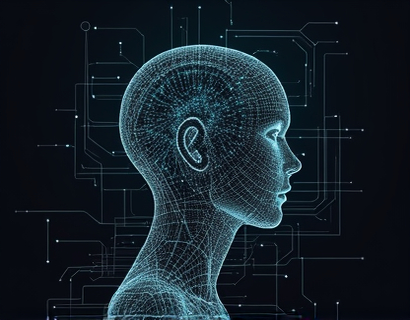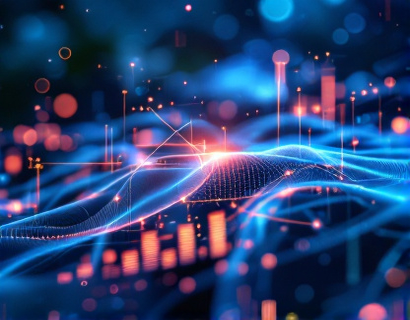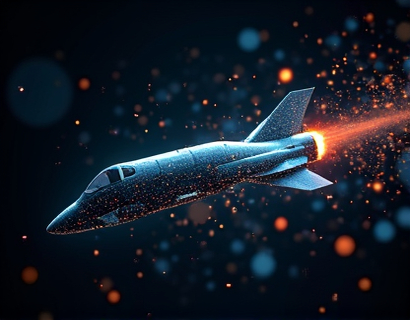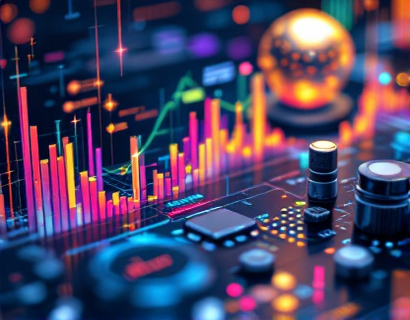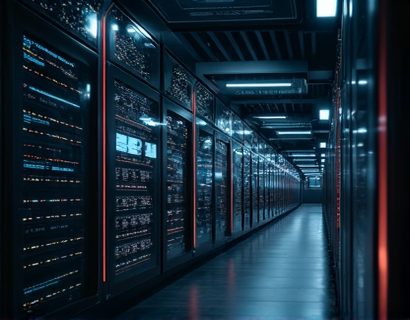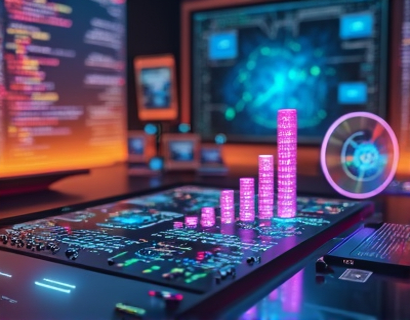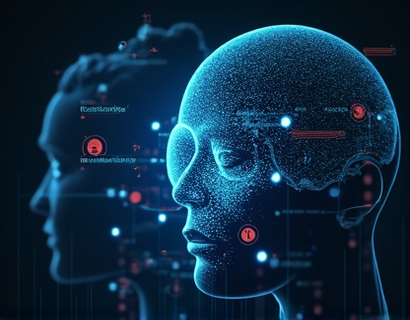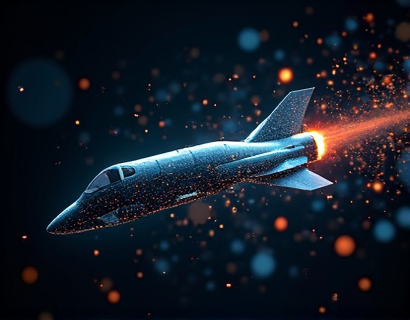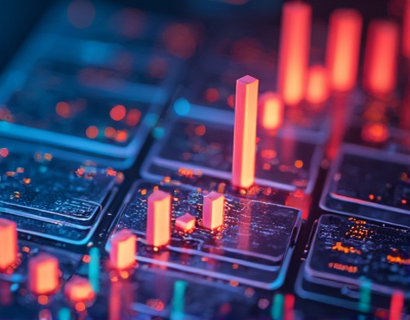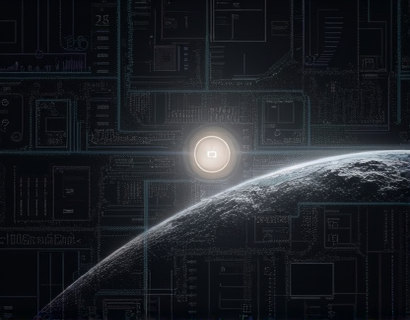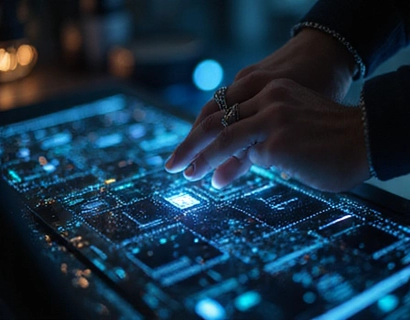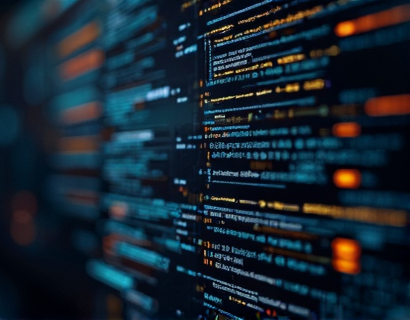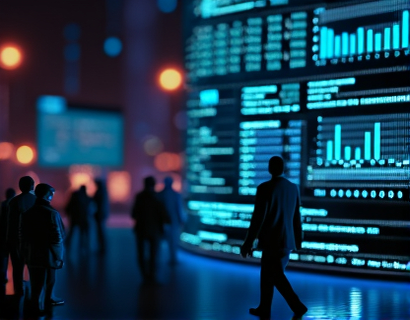AI and Crypto Convergence: Pioneering Intelligent Blockchain Solutions for the Future
The intersection of artificial intelligence (AI) and cryptocurrency is a rapidly evolving domain that promises to redefine the future of finance and technology. This convergence, often referred to as the synergy between AI and blockchain, is driving unprecedented innovation, offering new opportunities, and addressing longstanding challenges in both fields. This article delves into the dynamic relationship between AI and cryptocurrency, exploring how intelligent blockchain solutions are shaping the future of tech finance.
The integration of AI into blockchain technology is not just a trend but a necessity for enhancing the efficiency, security, and scalability of decentralized systems. AI algorithms, with their ability to process vast amounts of data and identify patterns, can significantly improve various aspects of blockchain networks. From optimizing consensus mechanisms to enhancing security protocols, the potential applications are vast and transformative.
Enhancing Blockchain Efficiency with AI
One of the primary challenges faced by blockchain technology is scalability. Traditional blockchain networks, such as Bitcoin and Ethereum, face limitations in transaction throughput and processing speed. AI can play a crucial role in addressing these issues by optimizing network performance and resource allocation. For instance, machine learning algorithms can predict network congestion and dynamically adjust parameters to maintain optimal performance.
Smart contracts, a cornerstone of blockchain technology, can also benefit from AI. AI-driven smart contracts can automate complex decision-making processes, execute transactions based on predefined conditions, and adapt to changing market conditions in real-time. This not only increases efficiency but also reduces the risk of human error and fraud.
AI for Enhanced Security in Cryptocurrency
Security is a paramount concern in the cryptocurrency space, and AI offers powerful tools to bolster defenses against cyber threats. Machine learning models can analyze patterns in transaction data to detect and prevent fraudulent activities such as money laundering and hacking attempts. Anomaly detection algorithms can identify unusual patterns that deviate from the norm, allowing for proactive measures to be taken.
Furthermore, AI can enhance the security of private keys and wallet management. Biometric authentication combined with AI-driven security protocols can provide a robust layer of protection, ensuring that only authorized users can access sensitive information. This integration not only safeguards user assets but also builds trust in the cryptocurrency ecosystem.
AI-Driven Market Analysis and Trading
The cryptocurrency market is notoriously volatile, making accurate market analysis and timely trading decisions crucial for success. AI algorithms excel in this domain by analyzing vast amounts of historical and real-time data to predict market trends and identify profitable trading opportunities. Natural language processing (NLP) techniques can even analyze news articles, social media posts, and other textual data to gauge market sentiment and make informed trading decisions.
Robo-advisors powered by AI can provide personalized investment strategies, manage portfolios, and execute trades with minimal human intervention. These AI-driven trading platforms can adapt to changing market conditions, optimizing returns and minimizing risks for investors. The combination of AI and cryptocurrency trading is revolutionizing the way investors approach the market, making it more accessible and efficient.
Decentralized AI and the Future of Blockchain
The convergence of AI and blockchain extends beyond enhancing existing systems; it also paves the way for decentralized AI solutions. Decentralized AI platforms allow for the distribution of AI computations across a network of nodes, eliminating the need for centralized data storage and processing. This not only enhances privacy and security but also democratizes access to AI technologies.
Decentralized machine learning (DMML) is a key area where AI and blockchain intersect. DMML enables the training of AI models using data from multiple sources without compromising individual data ownership. This collaborative approach to AI development can lead to more robust and diverse models, benefiting various industries from healthcare to finance.
Challenges and Considerations
While the potential of AI in the cryptocurrency space is immense, there are several challenges that need to be addressed. One of the primary concerns is the computational power required for both AI algorithms and blockchain networks. The energy consumption associated with these technologies raises environmental and sustainability issues that must be carefully managed.
Another challenge is the regulatory landscape. As AI and cryptocurrency continue to evolve, regulatory bodies are grappling with how to oversee these innovative technologies. Ensuring compliance while fostering innovation is a delicate balance that requires collaboration between technologists, policymakers, and industry stakeholders.
Building a Vibrant Community
The intersection of AI and cryptocurrency is not just a technological endeavor but a community-driven movement. A vibrant community of tech enthusiasts, developers, and professionals is essential for driving progress and sharing knowledge. Online forums, meetups, and conferences play a crucial role in fostering collaboration and innovation in this space.
Platforms that focus on the AI and cryptocurrency convergence can serve as hubs for this community. These platforms can offer resources such as tutorials, case studies, and expert interviews to educate and inspire individuals at all levels of expertise. By creating a supportive and inclusive environment, these platforms can accelerate the adoption and development of intelligent blockchain solutions.
Conclusion
The convergence of AI and cryptocurrency represents a new frontier in technology and finance, offering transformative possibilities and addressing longstanding challenges. As the field continues to evolve, the potential for innovation is vast, from enhancing blockchain efficiency and security to enabling decentralized AI solutions. The journey ahead requires a collaborative effort from the tech community, regulatory bodies, and industry leaders to harness the full potential of this synergy. By embracing the dynamic interplay between AI and blockchain, we can pave the way for a more secure, efficient, and inclusive future.



